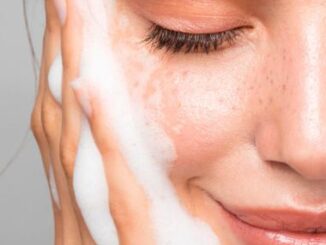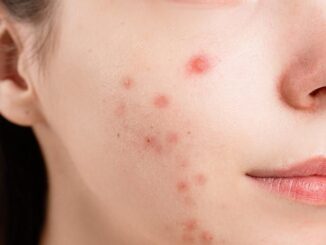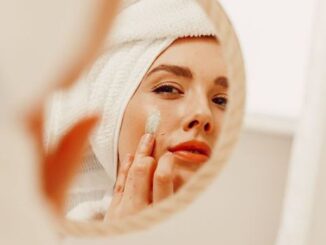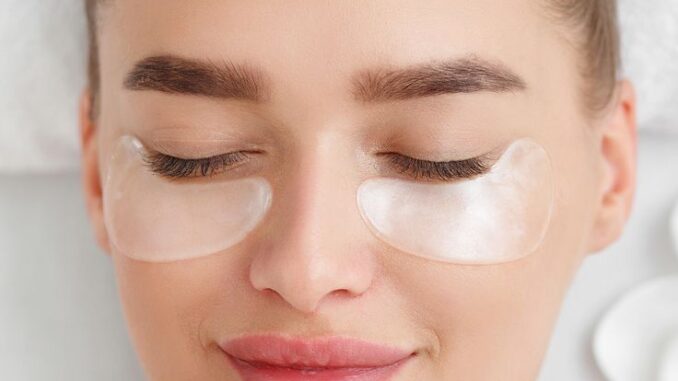
Do I need a skincare routine? This is a valid question to ask yourself before cultivating the daily culture of using skincare.
Whether you have a skin problem or simply want to maintain healthy skin, a skincare routine is more than just a beauty ritual. A good and effective skincare routine can make a huge difference in your skin’s health, especially for issues like acne, dryness, blemishes, skin burns, hyperpigmentation, wrinkles, and many more. A consistent skincare routine will improve your skin’s health and appearance, so if you find yourself asking, “Do I need a skincare routine? Repeat a resounding yes.
Do I need a skincare routine; Why skincare matters
As someone who struggles with skin issues and creating a skincare routine, it can be overwhelming at the beginning but here are a few helpful guides to start a skincare routine specific to your needs with skincare essentials, identifying and understanding your skin type.
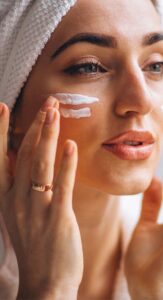
Understanding your skin and Its needs
Skin types and characteristics
Your skin type is critical in determining the kind of skincare routine that will work best for you. The most common skin types include oily, dry, combination, and sensitive. Understanding your skin type is the first step in choosing the right products and treatments.
Common Skin Concerns
From acne and hyperpigmentation to fine lines and wrinkles, various skin concerns require targeted solutions. Knowing what your skin needs will help you address these issues effectively and prevent future problems.
There are different types of acne and depending on what issues you’re dealing with, this specific concern has targeted solutions that will help solve them effectively.
What you need in a basic skincare routine
1. Cleansing: The First Step
Cleansing is the foundation of any skincare routine and a known rule. It removes dirt, oil, and impurities, preparing your skin for the steps that follow. Choose a gentle cleanser that suits your skin type to avoid stripping your skin of its natural oils. Do not make the mistake of just choosing any type of bar soap or cleanser to use on your face. Gently wash your face and rinse with warm water or room temperature. Before asking yourself, “Do I need a skincare routine?” get ready to commit to it and stay consistent.
If you have dry skin, use a cleanser with no fragrance, or alcohol that is suited for dry skin. If you have oily skin, use a cleanser that is an oil-free option and is suited for your skin. Keep in mind that the first cleanser or face wash you try might not work for you. Skincare can be a trial-and-error tango to find the best products suited for your skin. Don’t feel pressured to get it right the first time.
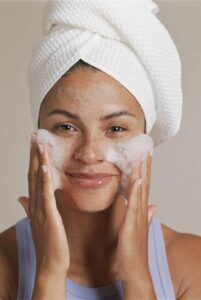
2. Toning: Balancing the Skin
Toners can do so much for your skin and should not be overlooked. Toners help restore your skin’s pH balance, reduce redness and dry patches, and remove any remaining impurities after cleansing. They also prepare the skin to absorb moisture more effectively and rejuvenate your skin. Apply your toner after washing your face to help soften and calm your skin.
3. Moisturising: Hydration and Protection
Moisturisers are for everyone and should always be included in your skincare routine. Moisturisers lock in hydration and protect your skin from environmental stressors. Whether you have oily or dry skin, moisturising is crucial to maintaining a healthy skin barrier.
It helps prevent your skin from drying out and leaves your skin hydrated with locked-in moisture. Just like cleansers, moisturisers can also have a series of trials and errors to choose the best one suited for your skin. For oily skin, oil-free or lightweight moisturisers are an ideal option, and for dry skin, deep penetrating moisturisers are a good option.
4. Sunscreen: Shielding from UV Damage
Apply sunscreen should be a daily mantra and if you’re still sceptical about it, let this article be that turning point for you. Sunscreen is non-negotiable in any skincare routine. Even on rainy days. It protects your skin from harmful UV rays that can cause premature ageing, sunburn, sun damage, and even skin cancer. Make sure to use a broad-spectrum sunscreen with at least SPF 30 or higher.
Skincare steps beyond the basics.
1. Exfoliation
Exfoliation helps remove dead skin cells, revealing brighter, smoother skin underneath. However, it’s essential to exfoliate without overdoing it, as this can lead to irritation. Adding exfoliation to your skincare routine but is not fitted for daily use. You should exfoliate 2 to 3 times a week, depending on how sensitive your skin is.
2. Serums
Serums are concentrated treatments that target specific skin concerns like dark spots, wrinkles, or acne. Incorporating a serum into your routine can provide powerful results over time. There are many types of serums with active ingredients such as niacinamide, salicylic acid, lactic acid, alpha-arbutin, and hyaluronic acid. These active ingredients have different purposes that contribute to healthy skin and identifying which ones would benefit your skin before using them is important.
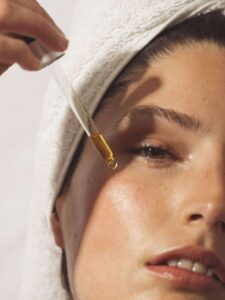
3. Eye Creams: Addressing the Delicate Eye Area
No one likes dark eyes and it’s normal to have the urgency to get rid of them. The skin around your eyes is thinner and more delicate, making it more prone to signs of ageing. Eye creams are specially formulated to hydrate and protect this area, reducing the appearance of puffiness, dark circles, and fine lines.
Customising Your Skincare Routine
1. Tailoring Your Routine to Your Skin Type
Not all skincare routines are one-size-fits-all. Customising your regimen based on your skin type will ensure you’re using the right products that won’t cause irritation or imbalances. Prioritise your skin needs when creating your skincare routine and pay attention to what works and doesn’t work for your skin.
2. Seasonal changes adjustment
Your skin’s needs can change with the seasons. Questions like “Do I need a skincare routine?” might come across your mind when the season changes and the correct answer is yes. For instance, you might need a heavier moisturiser in the winter and a lighter one in the summer. Adjust your routine accordingly to keep your skin balanced year-round.
3. Anti-ageing Strategies
As you age, your skin requires more targeted care. Skincare is essential for any age group and the skincare choices and routine you make prepare and build your skin health as you grow older. Start including anti-ageing products like retinoids, antioxidants, and peptides to keep your skin looking youthful and radiant. Also, prioritise your other skincare products, especially SPF.
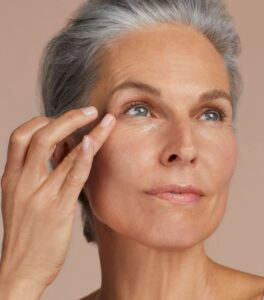
A consistent skincare routine tailored to your skin type can dramatically improve your skin’s health and appearance. Do I need a skincare routine? A good skincare routine is just what you need. From the basics like cleansing and moisturising to advanced treatments, each step plays a crucial role in having glowing skin and can go a long way.
Whether you’re new to skincare or looking to refine your routine, now is the perfect time to start. Take the time to understand your skin, choose the right products, and stick with your routine for the best results. Your skin will thank you!
FAQs
- How often should I update my skincare routine?
Every six months is a good amount of time to reassess your skincare routine. You can also decide to update your skincare routine if you notice any type of change in your skin or want to try out a new product.
- What if I have sensitive skin?
If you have sensitive skin, choose gentle, fragrance-free products and introduce new items slowly to avoid irritation.
- Can I skip some steps if I’m in a rush?
I would not recommend you skip your skincare routine steps, but if you’re in a rush, simply do the essential steps of cleansing, moisturising, and applying sunscreen.


